Staff
John Calambokidis
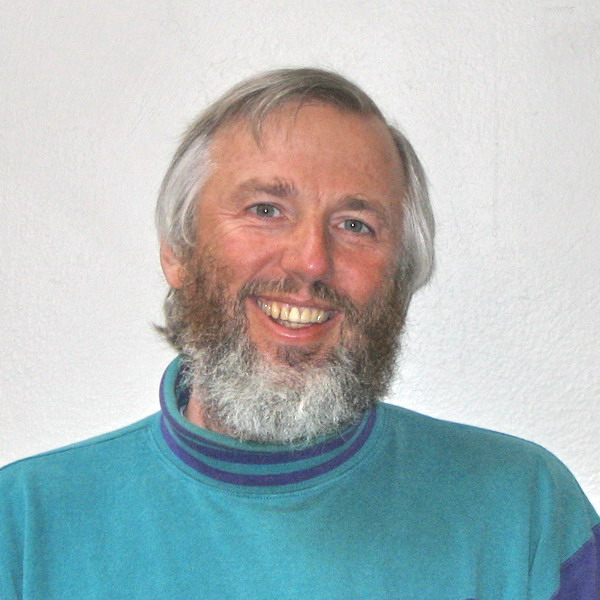
John Calambokidis is a Senior Research Biologist and one of the founders of Cascadia Research Collective, a non-profit research organization formed in 1979 based in Olympia, Washington. He periodically serves as an Adjunct Faculty at the Evergreen State College teaching a course on marine mammals. His primary interests are the biology of marine mammals and the impacts of humans. He has served as Project Director of over 200 projects. He has authored two books on marine mammals (on blue whales and a guide to marine mammals) as well as more than 135 publications in scientific journals, 150 technical reports, and 175 scientific presentations. He has conducted studies on a variety of marine mammals in the North Pacific from Central America to Alaska. He served as Project manager for major projects such as the SPLASH Pacific-wide study of humpback whales and the Southern California Behavioral Response Study to sonar. He has directed long-term research on the status, movements, and underwater behavior of blue, humpback, and gray whales. Some of his recent research has included attaching tags to whales with suction cups to examine their feeding behavior and vocalizations. His work has been covered on shows by National Geographic, Discovery Channel, BBC, and others. He has received awards from the American Cetacean Society for Lifetime Achievement in Marine Mammal Science (in 2012), from the Washington Chapter of the Wildlife Society for Lifetime Leadership in Conservation (2019), and the Olympia Rotary Club Environmental Protection Award (2018). John can be reached at Calambokidis@cascadiaresearch.org. Current CV available here.
Gretchen Steiger
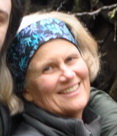
Gretchen Steiger was a Research Biologist at Cascadia Research since 1983, and died in April 2019 (click here to read the announcement of her passing). She conducted research on a number of species in many regions from the Arctic to Central America. She worked primarily as a writer and editor of scientific research proposals, reports and manuscripts. Recent projects included tracking reproductive rates of humpback whales using long-term photo-identification data and examining movements and population structure of humpback and blue whales in the North Pacific. She co-authored results of her work in scientific articles and wrote the book Blue Whales (Voyageur Press, with J. Calambokidis). She was president of the Board of Directors of Cascadia Research and a charter member of the Society for Marine Mammalogy. She earned her Bachelor of Science degree from the University of North Carolina-Chapel Hill.
Annie Douglas
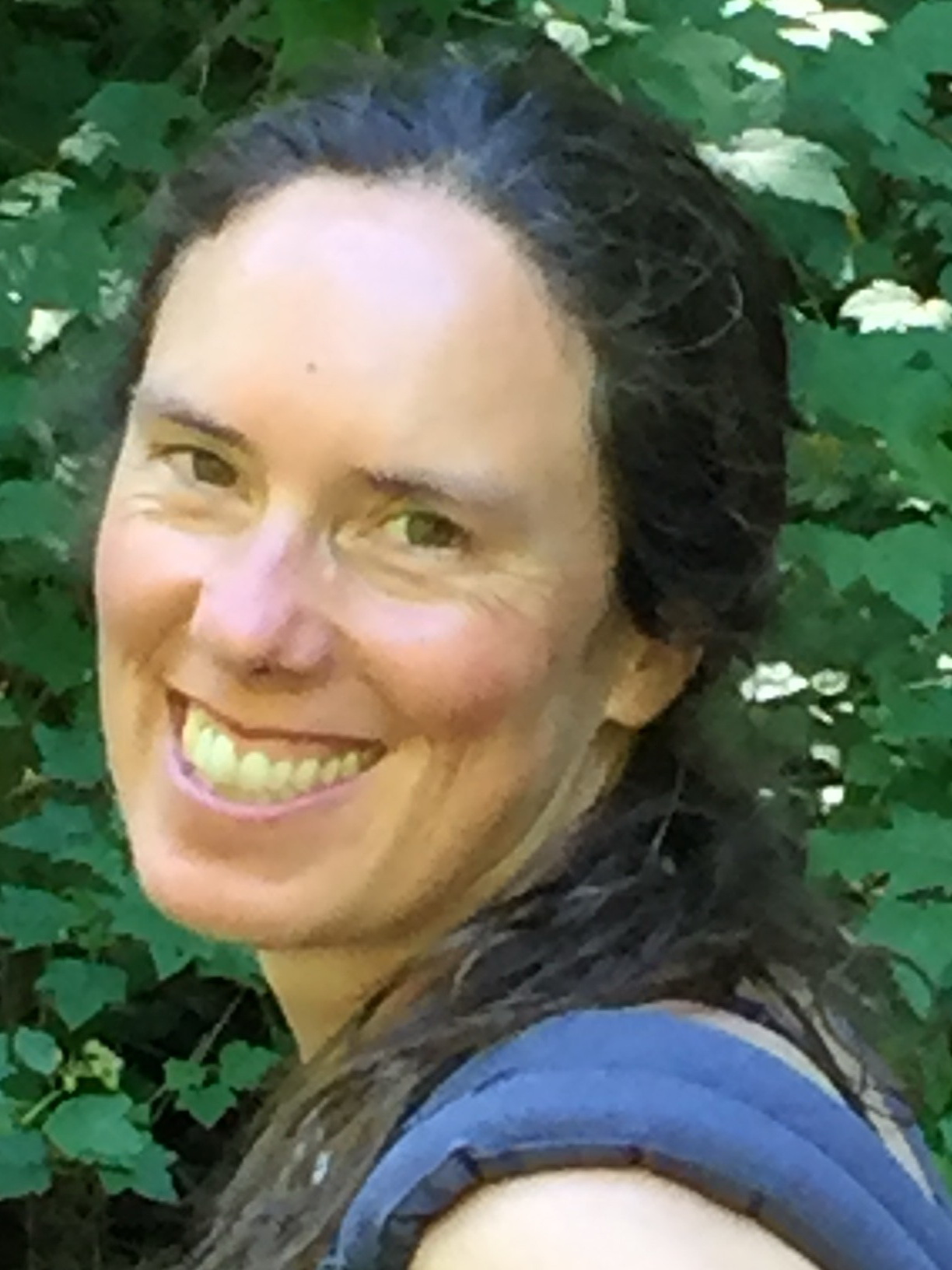
Annie Douglas is a Research Biologist with Cascadia Research, joining in 1997. She has been an active member of Cascadia’s board since 2004 and is currently acting as president. She has assisted on numerous projects in the temperate and tropical eastern Pacific to identify and track individual whales and dolphins using photo-identification. Annie has led Road Scholar groups to study humpback whales and various dolphin species during the winter months in Costa Rica, and very much enjoys opportunities to travel and learn with interns and volunteers in the field. When not traveling Annie manages Cascadia’s historical catalogs of blue whales and Central America false killer whales. She has been lead author on peer-reviewed publications on ship strikes of large whales in Washington waters, as well as seasonal abundance and distribution of cetaceans along southern California. She obtained her BSc from Evergreen State College in 1998. Annie can be reached at abdouglas@cascadiaresearch.org.
Robin Baird
Robin Baird is a Research Biologist with Cascadia Research, joining in 2003. He first began working with whales and dolphins in 1985, and for many years his research focused on marine mammals in British Columbia. His current research focuses on Hawaiian odontocete population structure, abundance, ecology and anthropogenic impacts, including studies of false killer whales, pantropical spotted dolphins, dwarf sperm whales, and others. He served as a member of the Committee of Scientific Advisors on Marine Mammals of the U.S. Marine Mammal Commission from 2011-2022, is currently an Editor of Endangered Species Research, an Affiliate Faculty at Hawai’i Pacific University, an Affiliate Faculty at the Hawai‘i Institute of Marine Biology, and a Courtesy (light) Faculty with the Department of Fisheries, Wildlife, & Conservation Sciences at Oregon State University. He has authored or co-authored more than 130 peer-reviewed publications and two books – Killer Whales of the World (2002, Voyageur Press) and The Lives of Hawai‘i’s Dolphins and Whales (2016, University of Hawai‘i Press), as well as several book chapters. He obtained his Ph.D. in Biology from Simon Fraser University in 1994, and was a Post Doctoral Fellow at Dalhousie University in Halifax, Canada. For more information on his research see his web page.
Doug Sandilands
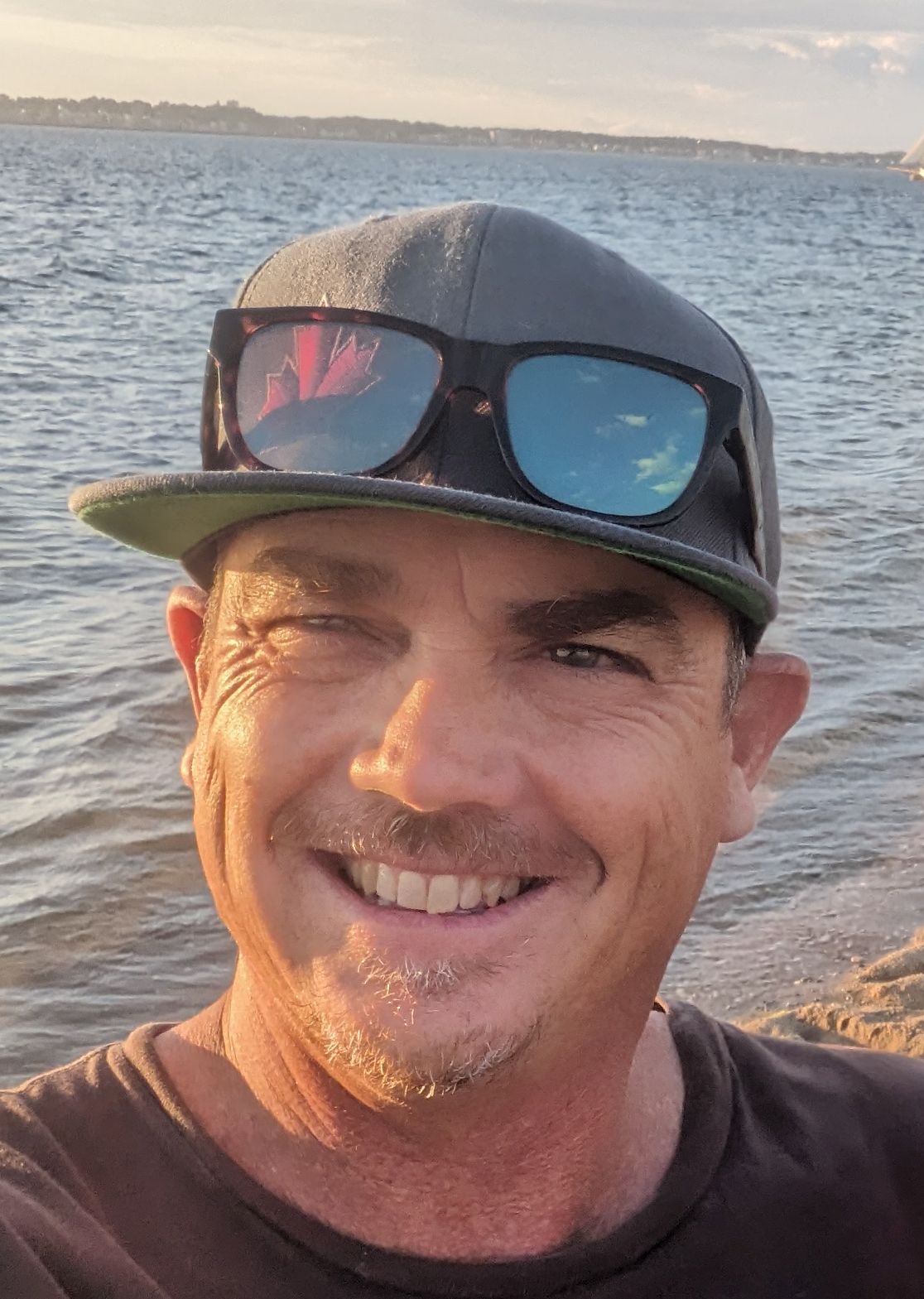
Doug Sandilands is a researcher and Level 5 large whale entanglement responder at Cascadia Research. Doug began his career at the Vancouver Aquarium in 2000 where he helped establish the BC Cetacean Sightings Network and co-founded Cetus Research and Conservation Society in 2005. He joined the Center for Coastal Studies in 2011, specializing in large whale and sea turtle entanglement response. Doug moved to Washington State in 2017 to work with SR3 and helped to foster the West Coast Large Whale Entanglement Response Network. After a second stint at the Center for Coastal Studies, Doug joined Cascadia Research in the spring of 2024 and is co-directing a new collaborative partnership focused on West Coast whale entanglement research, response, and training housed at Cascadia. Doug has worked on cetacean research projects in British Columbia, the Gulf of Maine, the US West Coast and American Samoa.
Jenn Tackaberry
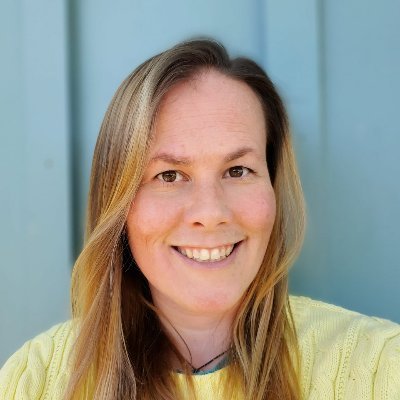
Jenn Tackaberry is a Research Biologist with Cascadia Research and a Level 5 responder for the West Coast Large Whale Entanglement Response Network. She is co-directing a new collaborative initiative focused on West Coast whale entanglement research, response, and training housed at Cascadia. Jenn started studying marine mammals in 2004 and received her Master’s degree from Moss Landing Marine Laboratories at San Jose State University. Her work focuses primarily on humpback whales, but she also works with many other baleen whale species, including blue, fin, sei, grey, minke, and NA right whales. Jenn mainly works on the foraging grounds along the US West Coast and the Gulf of Maine, but she has spent short stints on the breeding grounds around American Samoa, Dominica Republic, and Maui. Her work experience includes long-term population and behavioral studies, behavioral and movement analysis of biologger data, and entanglement response and research.
Alie Perez
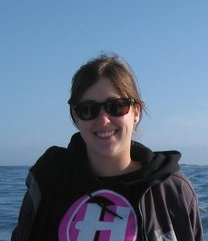
Alie Perez has been working with Cascadia Research since 2009 where she started as an intern while an undergraduate student. She received her BSc from the Evergreen State College in 2010. She primarily works on photographic identification of blue, humpback, and gray whales. However, her emphasis has been helping to manage Cascadia’s gray whale collections and contributions, including data and photo processing as well as catalog comparisons. She is interested in researching the population dynamics and movements of gray whales. Alie can be reached at aperez@cascadiaresearch.org.
Alex Zerbini
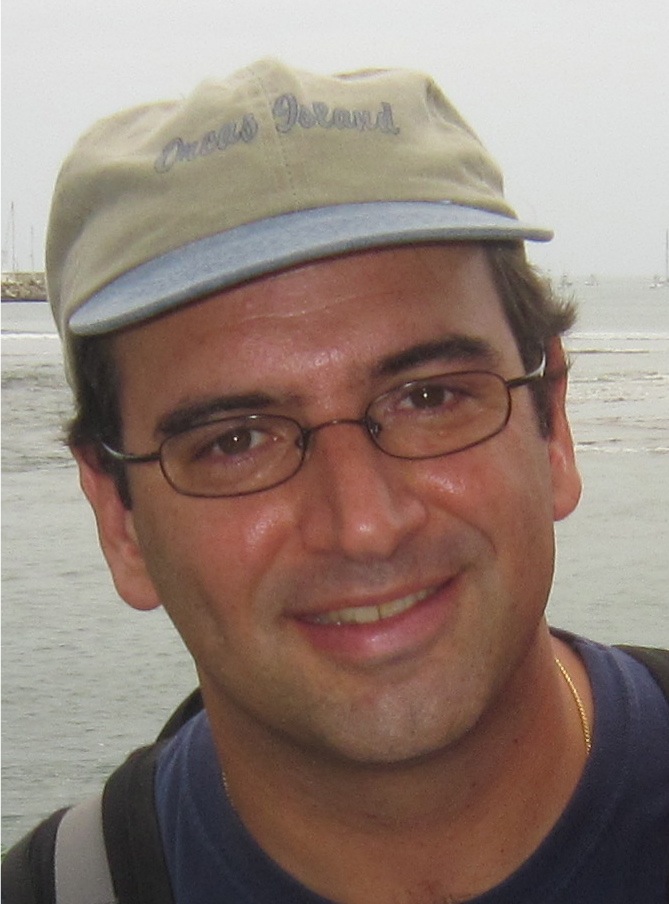
Alex Zerbini started working as a Research Biologist with Cascadia Research in 2009. Alex has studied marine mammals since 1992. He studied taxonomy of southern minke whale species while a masters student in his home country of Brazil. He moved to the US in 1999 to pursue a Ph.D. at the University of Washington in 1999 and graduated in 2006. His research has focused on population abundance and assessment of killer, fin and humpback whales in the North Pacific and of humpback whales the west South Atlantic Ocean and, more recently, in satellite telemetry of large whales. Alex has been a member of the scientific committee of the International Whaling Commission since 2000 and has chaired two of the IWC’s subcommittees. He is also a member of the IUCN Cetacean Specialist Group. Alex has authored or co-authored more than 40 peer-reviewed articles and a number of other non-peer reviewed reports. Alex can be reached at azerbini@cascadiaresearch.org.
Elana Dobson
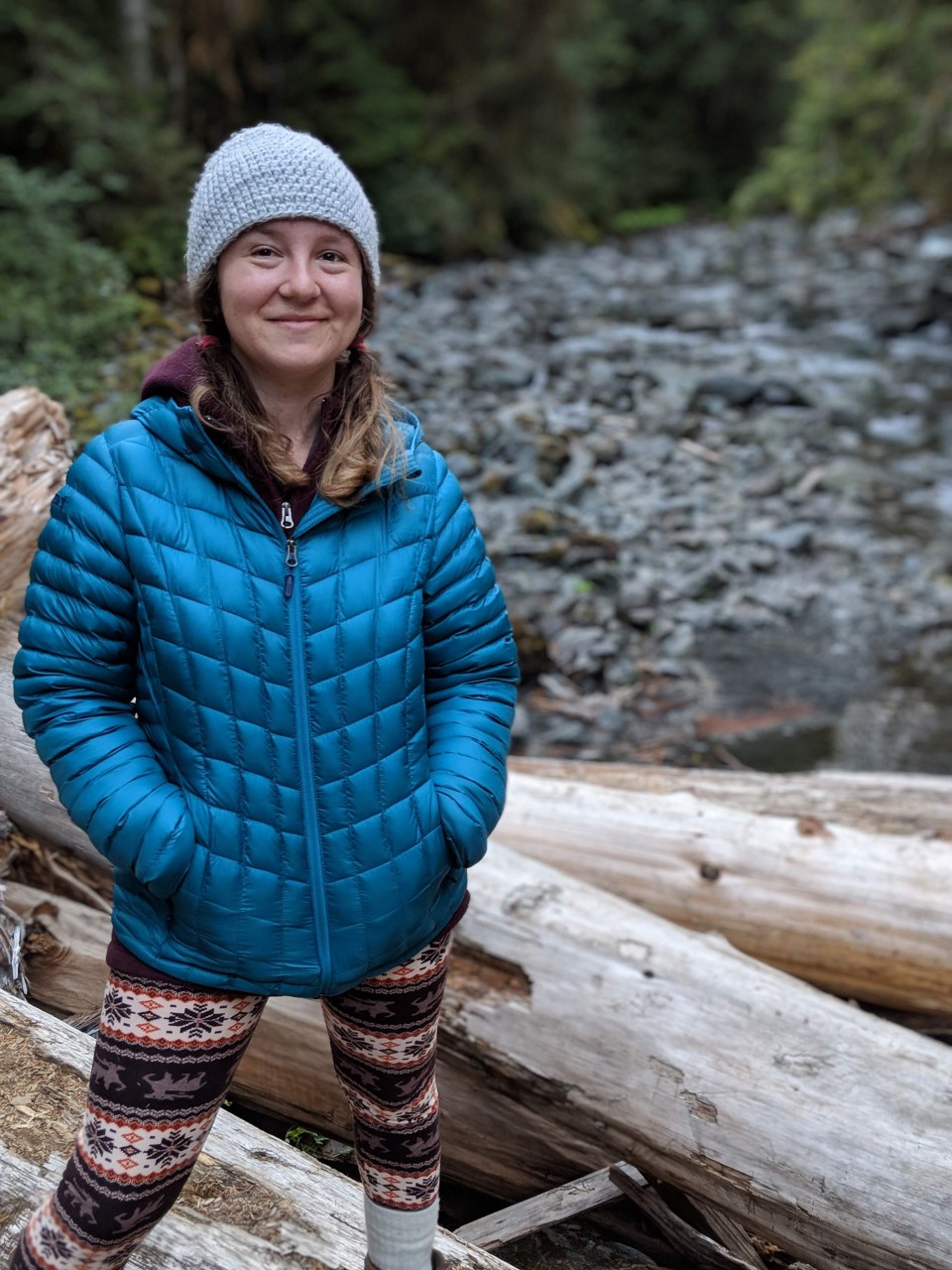
Elana Dobson has been with Cascadia since 2011 when she started as an intern. She primarily works on large baleen whale photo-identification projects. She received her BSc from Evergreen State College in 2010 with an emphasis in marine biology. During her time at Evergreen, she researched the maximum force exerted by the chelipeds of northern kelp crabs (Pugettia producta) in comparison to that of red rock crabs (Cancer productus). Elana can be reached at edobson@cascadiaresearch.org.
Alexandra Vanderzee
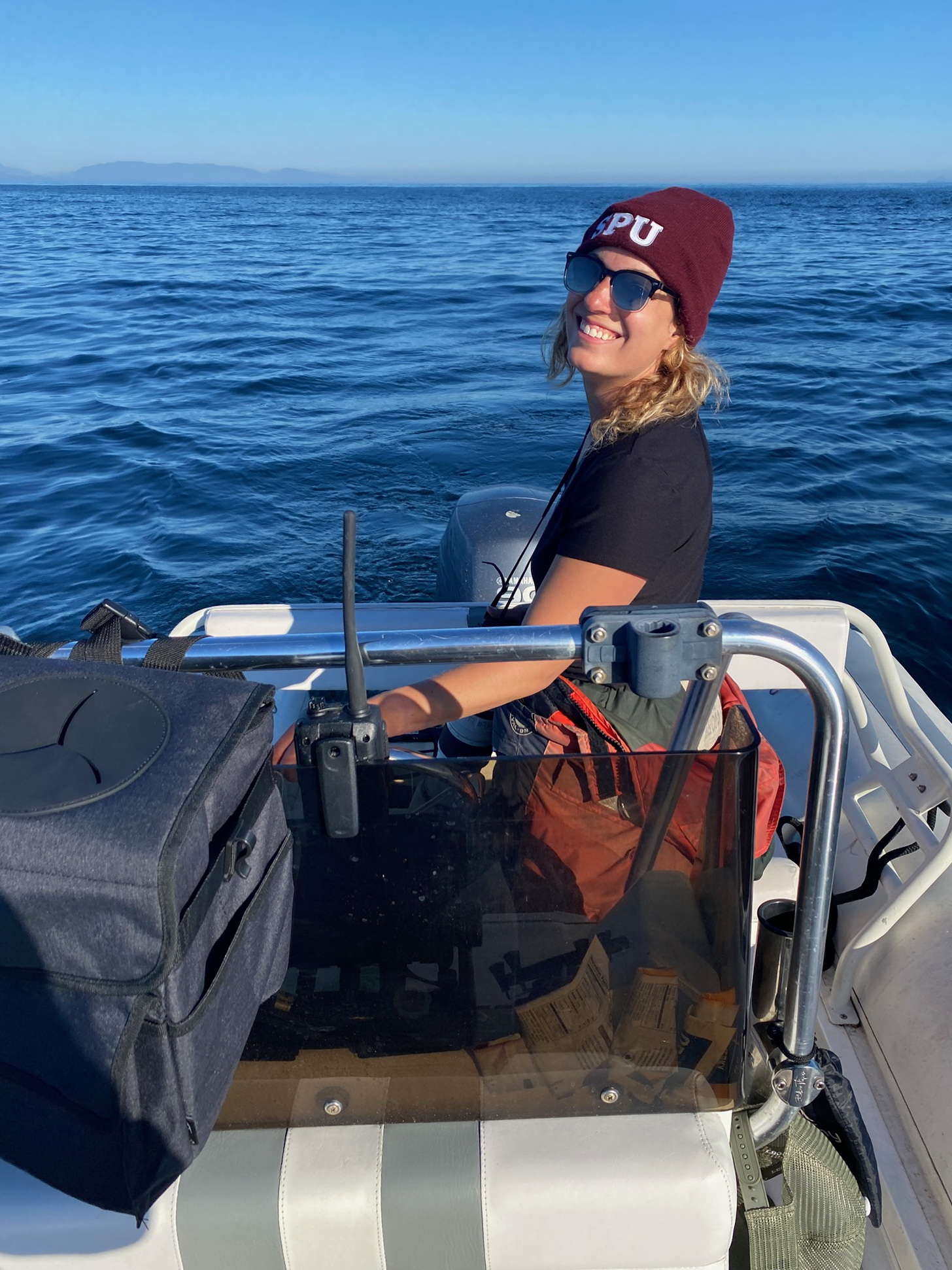
Alexandra Vanderzee has been with Cascadia Research since 2011 where she started as an intern after graduating from Regent University in 2010 with a BS in Psychology. She is currently a graduate student at Oregon State University working on her Masters in Environmental Science with a focus in ecology. Alex has her hands in a wide variety of projects at Cascadia, working both for the West Coast and Hawai’i sides of the office. She assists with many of our long-term photo identification projects in varying capacities, and acts as co-intern coordinator for West Coast projects. She also supports survey efforts in the field, including SOCAL BRS, Tagless BRS, and small boat surveys all along the US West Coast and inland Washington waters. She received her FAA part 107 drone license in 2022, and has assisted with large whale entanglement response. Her current main interests include documenting risso’s dolphin shifts in the Southern California Bight using photo-ID, humpback whale movement and distribution patterns in inland Washington waters, and supporting various projects related to Sounders gray whales. Alex can be reached at avanderzee@cascadiaresearch.org
Jessie Huggins
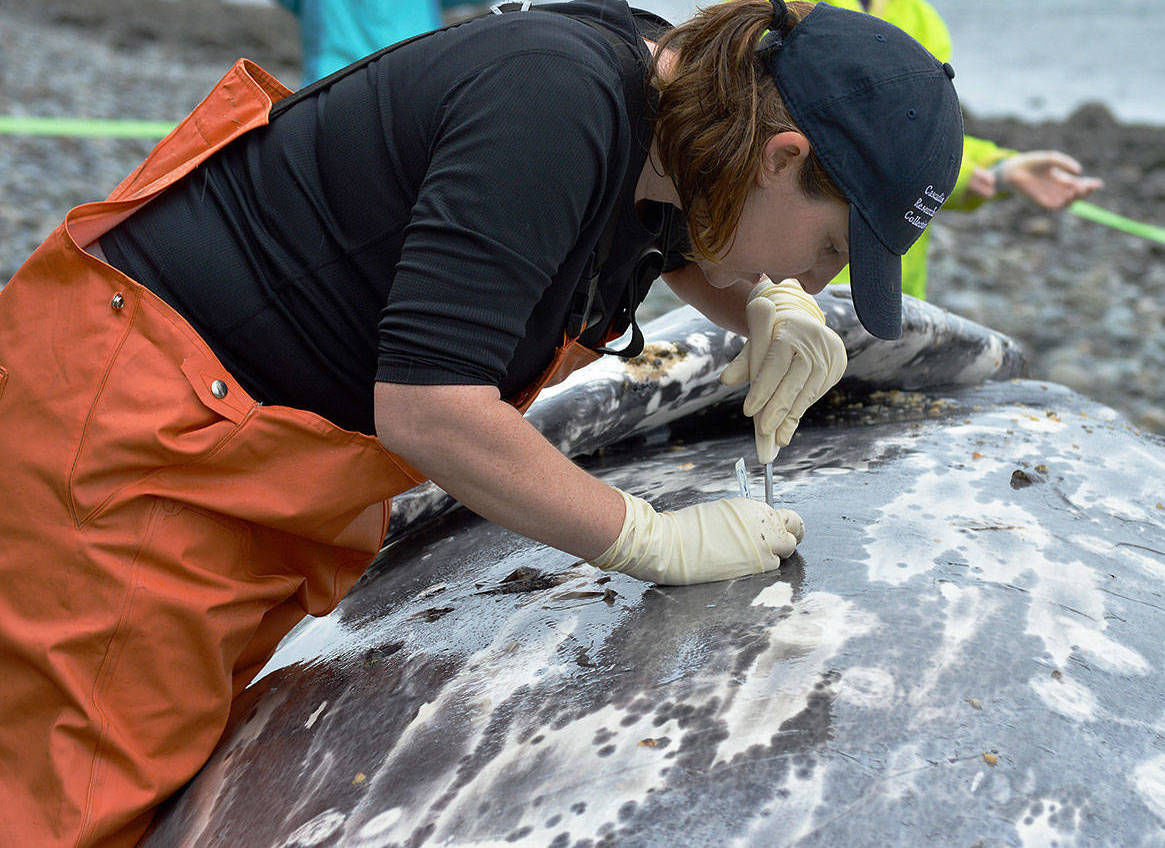
Jessie Huggins has been with Cascadia Research since 2004. As our stranding coordinator, she takes the lead on Cascadia’s responses to and examinations of stranded marine mammals in Washington State, specializing in large whale and other cetacean strandings. Her current research interests include marine mammal diseases, long-term stranding trends, and human impacts. In addition to stranding response, she works on various aspects of our large whale photo-identification projects. She is a Pacific Northwest native and received her BS in Zoology from the University of Washington in 2001. Jessie can be reached at jhuggins@cascadiaresearch.org.
James Fahlbusch
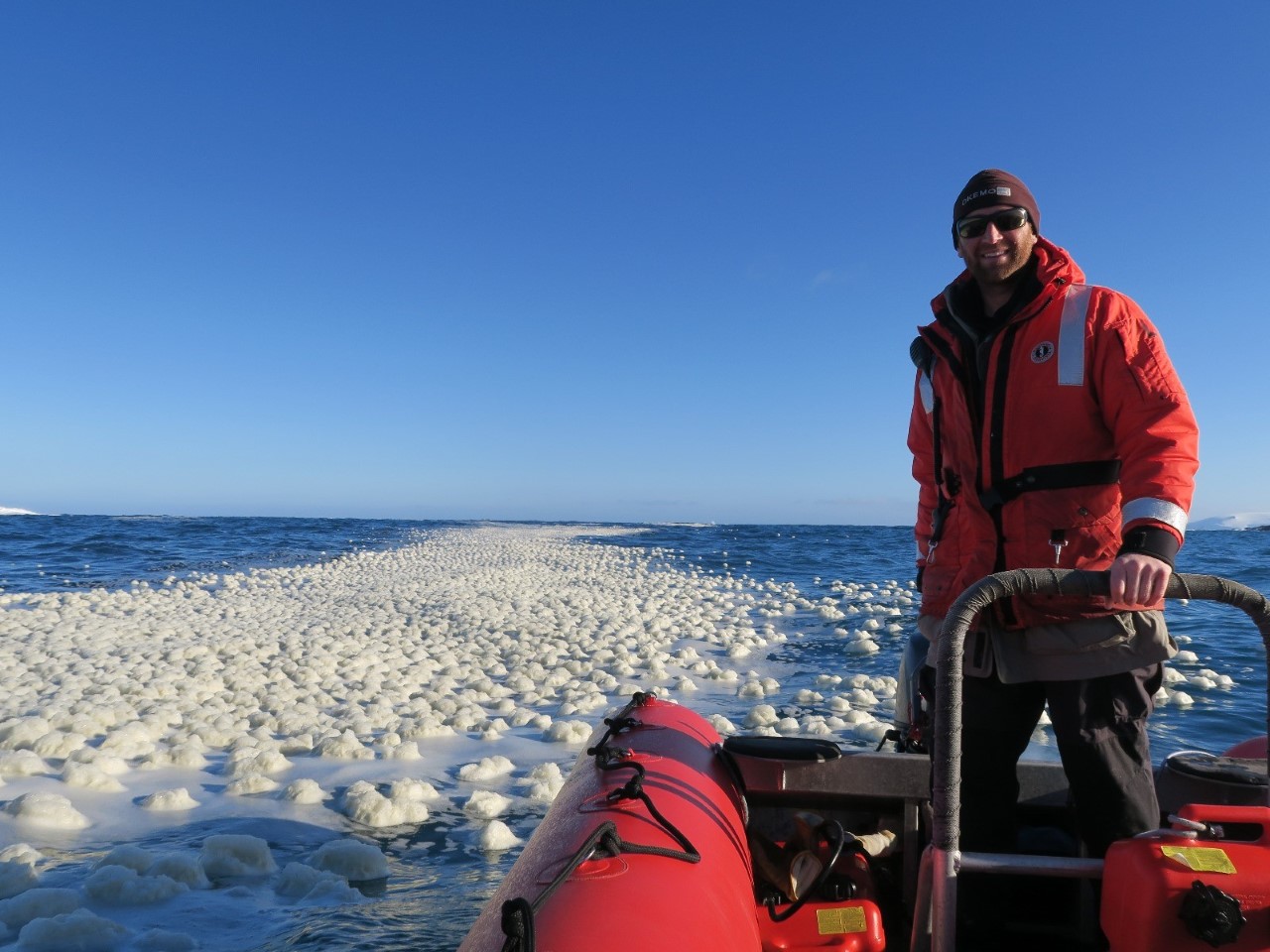
James Fahlbusch has been working as a key part of Cascadia’s West Coast team since August 2012, though prior to that he had skippered one of the boats Cascadia had chartered for the Behavioral Response Study (BRS). Since then he has become an invaluable part of the West Coast team operating the Cascadia RHIBs, conducting surveys, helping to develop and deploy archival tags on large whales, and many other roles. He is also currently a graduate student at Stanford getting his Ph.D. with Jeremy Goldbogen at the Hopkins Marine Station in Pacific Grove. In addition to his skills on the water, James is also a skilled analyst working with tag data from large whales and linking their behavior and movements to oceanographic processes.
Sabre Mahaffy
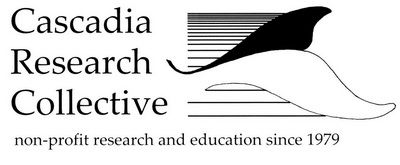
Sabre Mahaffy began working with Cascadia Research in 2005. She currently manages several long-term photo-identification catalogs for Hawaiian odontocetes and has participated in field projects in Washington State and the Hawaiian Islands. Sabre received her Master’s degree in biology from Portland State University in 2012 with her thesis focusing on the social organization and association patterns of short-finned pilot whales in Hawai‘i. Sabre can be reached at mahaffys@cascadiaresearch.org
David Anderson
David Anderson has been with Cascadia Research since 2011, starting out as an intern while working on his Master of Environmental Studies degree at Evergreen. After his internship, he continued working with cascadia on his thesis project, Harbor porpoise return to the South Puget Sound: using bioacoustic methods to monitor a recovering population. Most of his work involves analysis of satellite tag data for the Hawai‘i and Atlantic odontocete projects. He also assists with field work for the SOCAL Tagless BRS, and conducts regular marine mammal surveys in the South Puget Sound. Dave can be reached at danderson@cascadiaresearch.org.
Annette Harnish
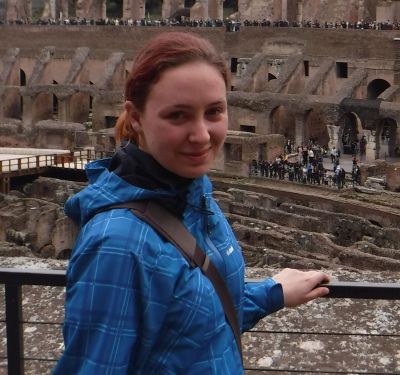

Annette Harnish started at Cascadia in 2017 as an intern with the Hawai’i project, following the completion of her BS in microbiology from Montana State University. She is the curator of Cascadia’s Hawaiian common bottlenose dolphin catalog and has regularly assisted with various projects involving other Hawaiian cetacean species. Annette also helps to coordinate intern activites, primarily for the Hawai’i office. She received her Master’s degree in 2021 from The Evergreen State College with her thesis focused on inter-island movements of bottlenose dolphins between O’ahu and Maui Nui. Her current research interests include population structure, fisheries interactions, and conservation policy. Annette can be reached at aharnish@cascadiaresearch.org.
Jordan Lerma
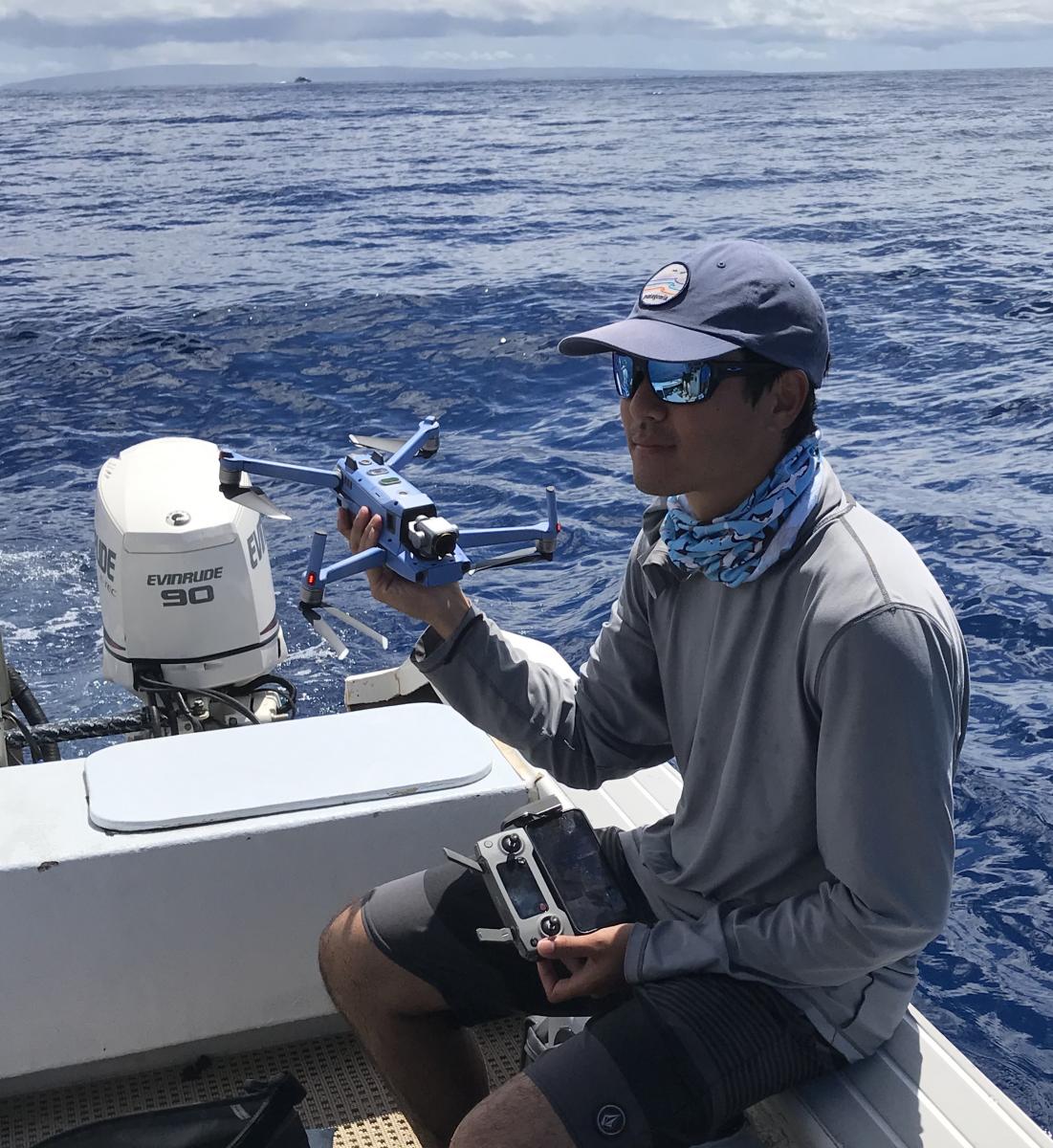

Jordan Lerma started working with Cascadia in 2017 as a volunteer, and has been one of the core Hawai‘i team members since 2018. In additional to field work, he has been involved in developing camera systems for use on longline vessels, developing standard operating procedures for UAV data collection like photogrammetry and breath sampling on small/medium-sized odontocetes, and analyzing drone video data. Jordan is also working on increasing participation in community science at nene.org. Jordan can be contacted at JLerma@cascadiaresearch.org
Colin Cornforth


Colin Cornforth is one of our Hawai’i-based research team. He has a 100 ton USCG masters credential and helps run logistics for inter-island projects. He has long been working with marine wildlife in Hawai‘i as a leading captain out of Honokohau marina on Hawai‘i Island. He started as a volunteer with Cascadia and has been working on a research assistant on projects including photo-identification and biopsy sampling of a number of species of Hawaiian odontocetes.
Michaela Kratofil
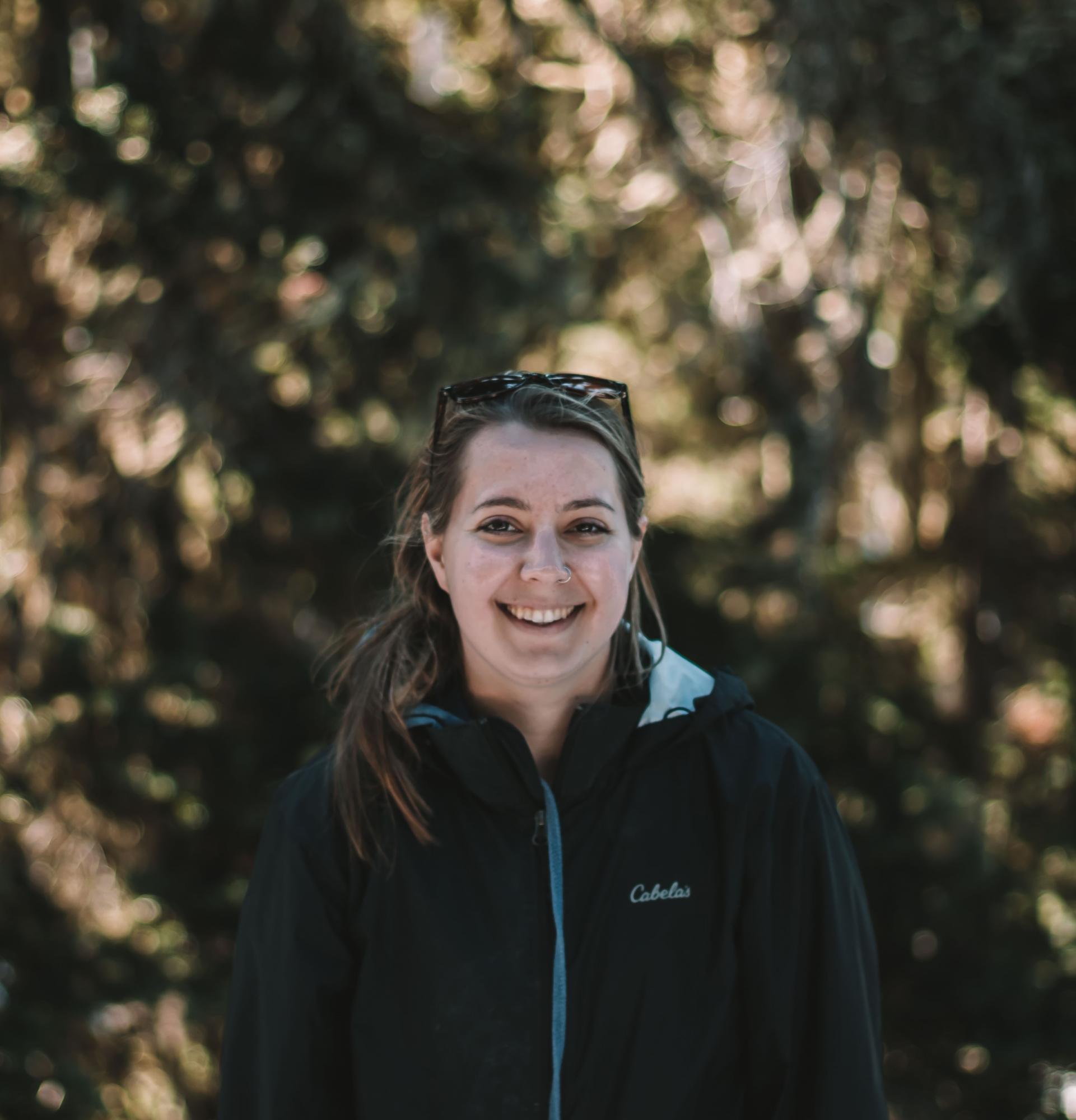

Michaela Kratofil has been with Cascadia since 2018 when she started as an intern while pursuing a BSc in Fisheries and Wildlife at Michigan State University. Her work primarily consists of analyzing telemetry data for research initiatives on Hawaiian odontocetes, although she is involved in a number of different studies concerning odontocete stock structure and management in Hawai’i. She is broadly interested in applied ecological research and conservation but has a particular interest in the population and movement ecology of marine mammals. Through her currrent and future research, she aims to use quantitative techniques to better understand the processes that drive animal movement through several lenses (environmental, social, behavioral) and at several scales (individual to population), to effectively inform management. This upcoming fall (2021) she will be starting her Master’s with the Whale Habitat, Ecology & Telemetry (WHET) Lab led by Dr. Daniel Palacios at the Marine Mammal Institute at Oregon State University. You can reach Michaela at mkratofil@cascadiaresearch.org and learn more about her past and current work at her personal website.
Hannah Clayton
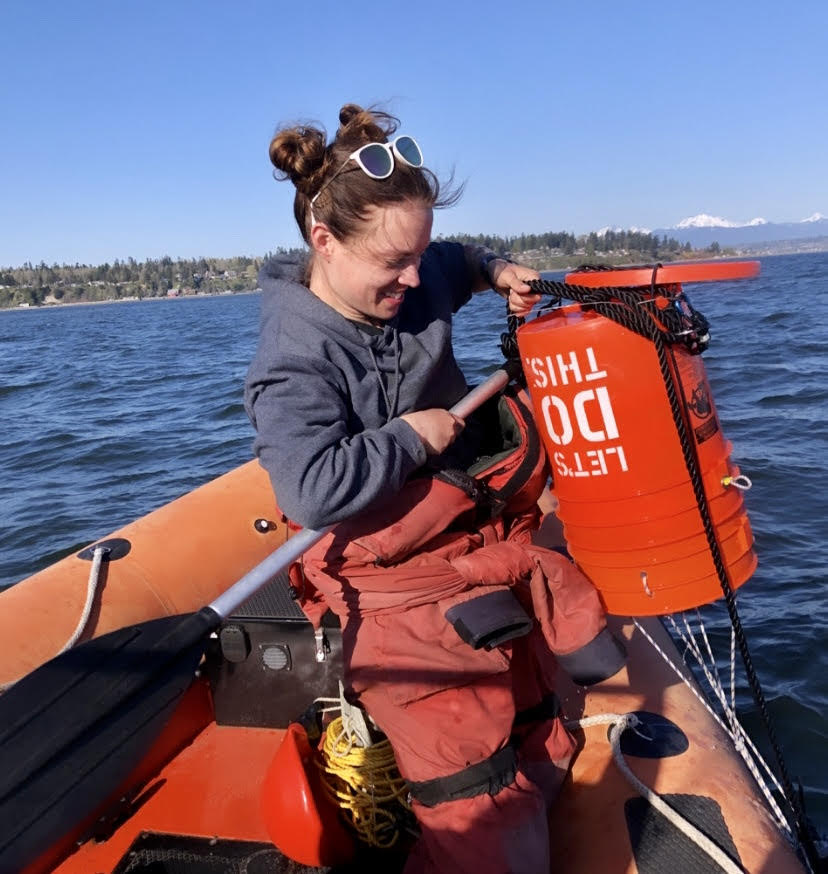

Hannah Clayton started working with Cascadia Research in April 2021 and the majority of her work centers around understanding the function of acoustic activity in baleen whale populations through static hydrophone and animal-borne tag data analyses. Hannah has a specific interest in the acoustic and foraging behavior of the “Sounders” and, as a Ph.D. student at Stanford’s Goldbogen lab (starting Fall 2022), will be addressing such topics as 1) how to determine caller identity from animal-borne acoustic/tag data, 2) how call repertoire for this group varies spatiotemporally and in comparison to the larger ENP population, and 3) how foraging strategies vary amongst individual Sounders and how this correlates to increased body conditions. Hannah has also supported a number of Cascadia projects including the SOCAL Tagless BRS study and humpback and gray whale photo-identification surveys in Washington.
Jack Barkowski
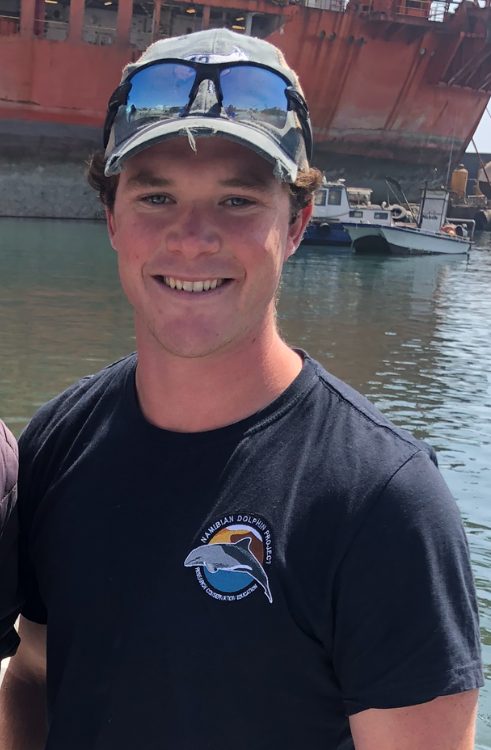

Jack Barkowski started working with Cascadia Research Collective in September 2021, helping collect data and run surveys to monitor baleen whale presence and behavior near the open and close of the Dungeness Crab Fishery in California. He is working on his MSc at Moss Landing Marine Laboratories, where he studies patterns in song and non-song humpback whale vocalizations along the U.S. West Coast. His research interests are focused on using acoustics to understand the function of sound in the lives of different marine mammals, and how these functions might be impacted by anthropogenic activities. Currently, Jack works on the SanctSound Project as a bioacoustic analyst, and as a field technician on the ADRIFT project, both of which use acoustics to monitor marine mammal presence in different areas of the U.S. West Coast. Jack will use his skills on the water and as an analyst to support CRC research projects in CA, OR, and WA.
Andi Gero
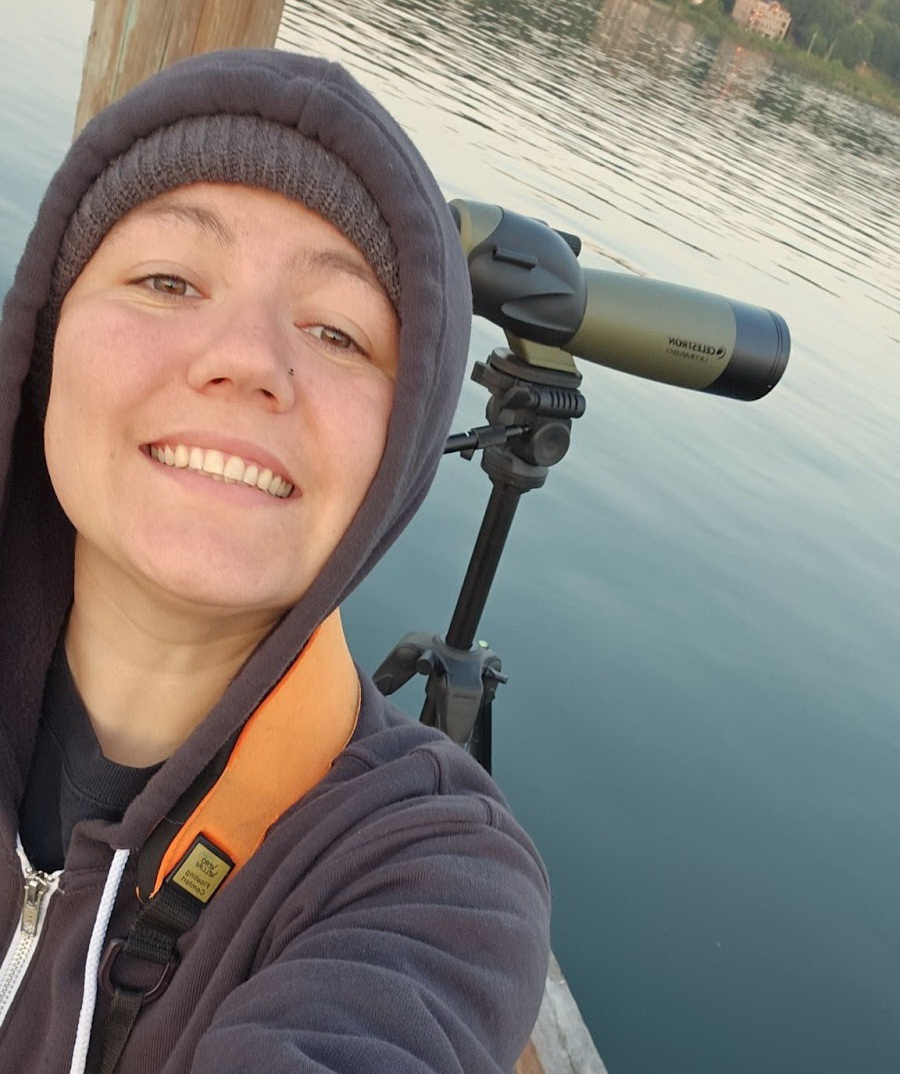

Andi Gero started at CRC in March 2023 as a West Coast intern as she transitioned out of the United States Army. After her internship, Andi stayed on as staff to assist the stranding team and West Coast office on a variety of projects. She also works as a Veterinary Assistant at Evergreen Avian and Exotics Animal Hospital and volunteers at Twin Harbors Wildlife Center, working towards getting licensed as a Veterinary Technician and a Wildlife Rehabilitator.
Corinne Holland



Corinne Holland is the Operations Manager for Cascadia Research, recently joining us in July of 2021. Corinne began her business career in San Diego, CA in the Real Estate Development field. After vacationing in OR and WA she fell in love with the PNW, planted her roots in Olympia, WA and transitioned her career to Community Management. Corinne is thrilled with the opportunity to combine her love of the ocean with her business expertise to support the Cascadia team. Her role includes administrative and HR oversight, office management, financial and contract/grant management, and bookkeeping. Corinne can be reached at cholland@cascadiaresearch.org
Greg Falxa
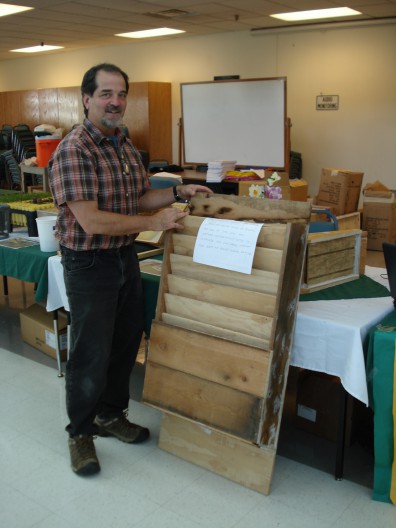

Greg Falxa has been working off and on with Cascadia Research since its inception. He is a master electronics and radio technician and assisted with technical aspects of many Cascadia projects. His current research is focused on bat population surveys and studies of bat colonies in the Pacific Northwest using radio tracking, ultrasonic call analysis, and RADAR technologies. Currently, finding methods to better determine the presence or absence of Townsend’s Big-eared and Keen’s myotis bats are occupying his attention. Some of the results of his bat work can be found at Cascadia’s bat page or email him at gfalxa@cascadiaresearch.org.
Research Associates
Daniel Barrios
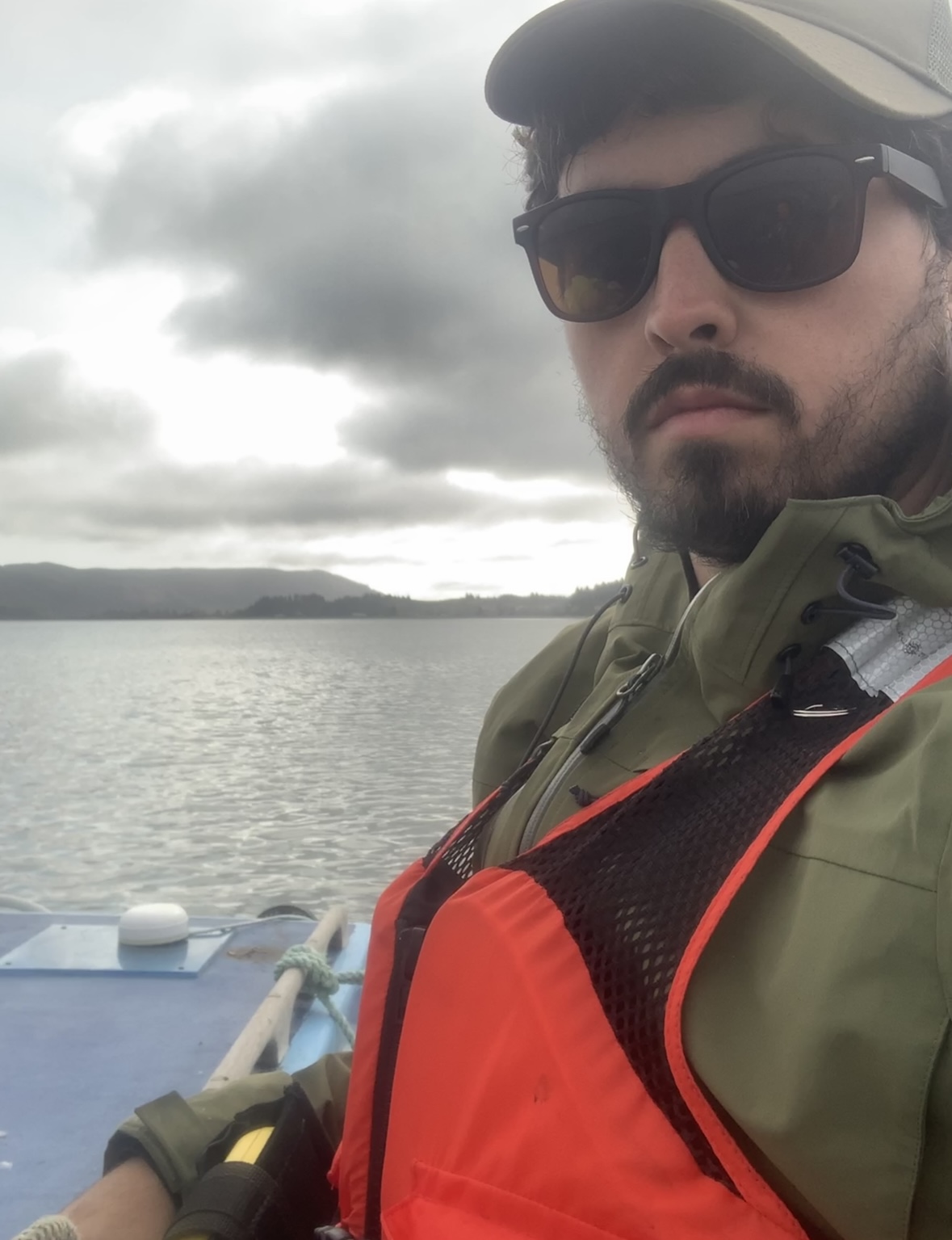

Daniel Barrios interned in the Hawai’i office while pursuing a Master’s in Professional Science with the University of Miami from 2022-23. His final thesis used long-term sighting and tag data to examine habitat differences between Cuvier’s and Blainville’s beaked whales, as well as spotted dolphin space use between seasons. Currently, he is working with Cascadia on uncovering links between Hawaiian odontocete habitat use and climatic/temporal variables, including ENSO cycles and seasons.
Jacquelyn Shaff
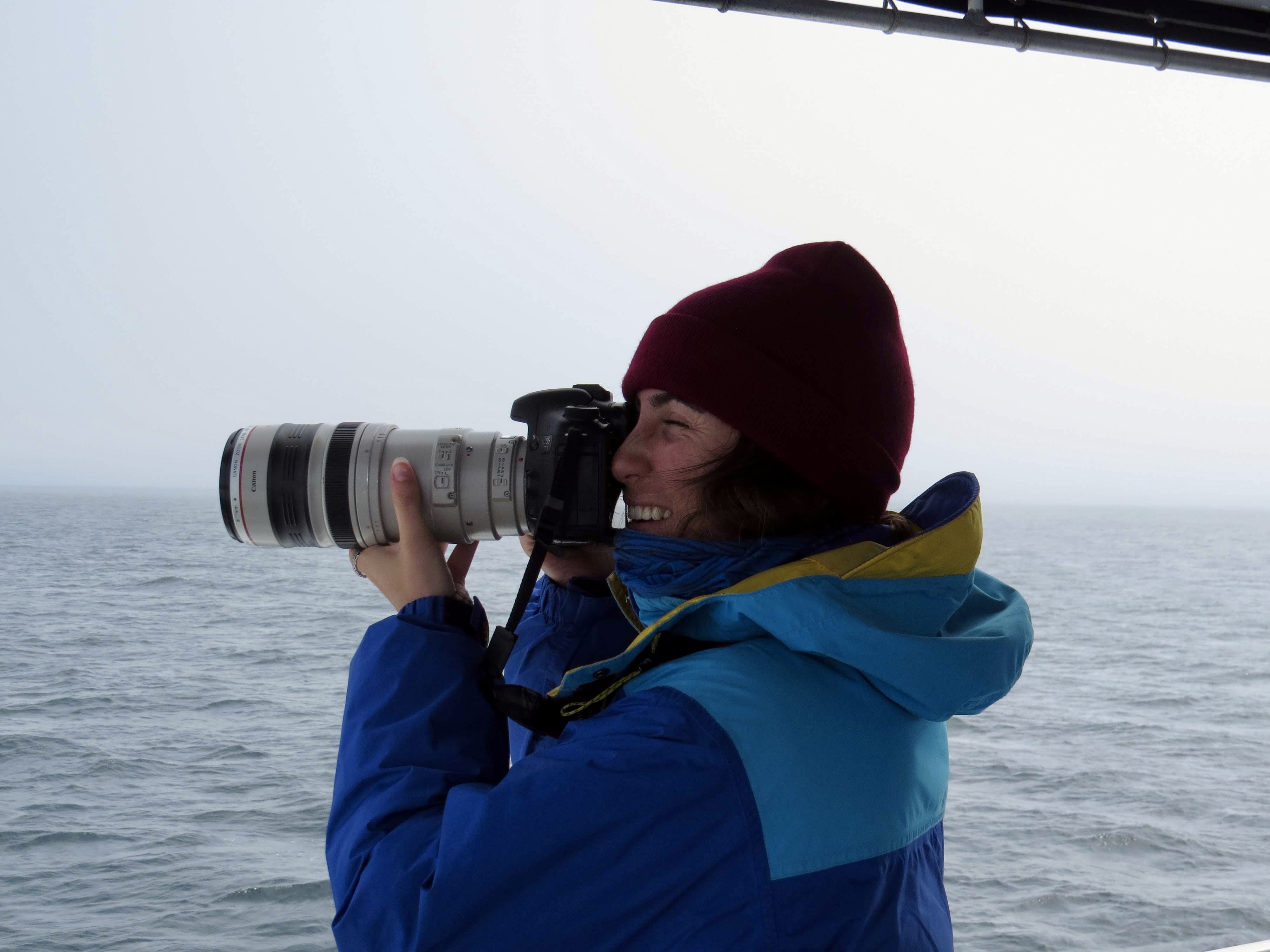

Jackie Shaff started with Cascadia in 2019 as an intern for the Hawai’i project after finishing her BS in Wildlife, Fish, and Conservation Biology from the University of California, Davis. Jackie also has a Master’s in Marine Affairs from the University of Washington, where her thesis focuses on historical ecology and the role of local ecological knowledge of fishers to understand trends in marine top predator abundance and distribution over time. She is currently working as a staff member for the Marine Mammal Commission under the 2023 John A. Knauss Marine Policy Fellowship. Jackie is continuing her affiliation with Cascadia as a Research Associate to work on odontocete diving behavior projects using telemetry data, focusing in particular on Hawaiian false killer whales.
Annie Gorgone
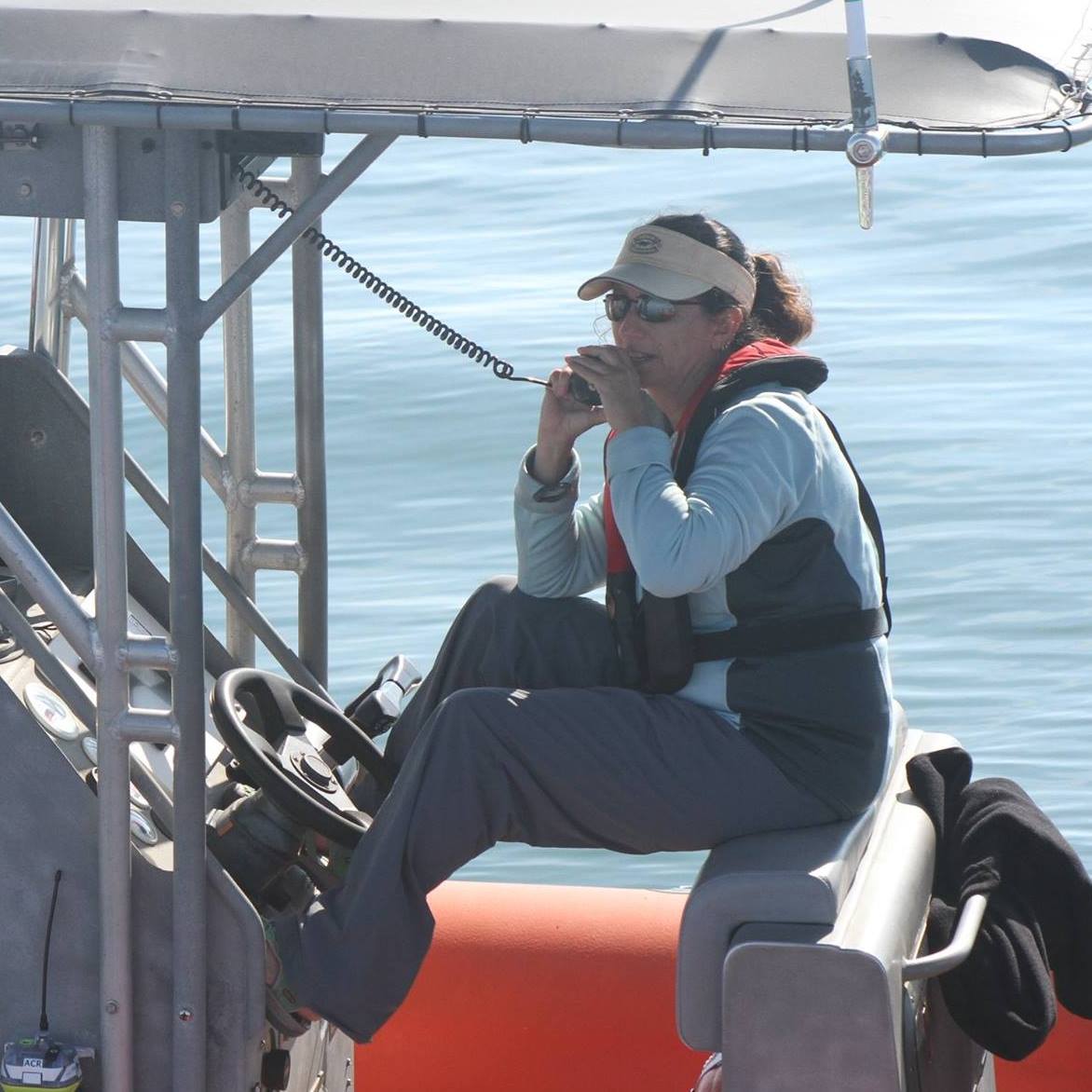

Annie Gorgone is a Research Associate with Cascadia Research. Annie has been involved in Hawaiian odontocete research since 2000, and has co-curated both the Hawai‘i bottlenose dolphin and false killer whale photo-identification catalogs.
Frank Garita Alpízar
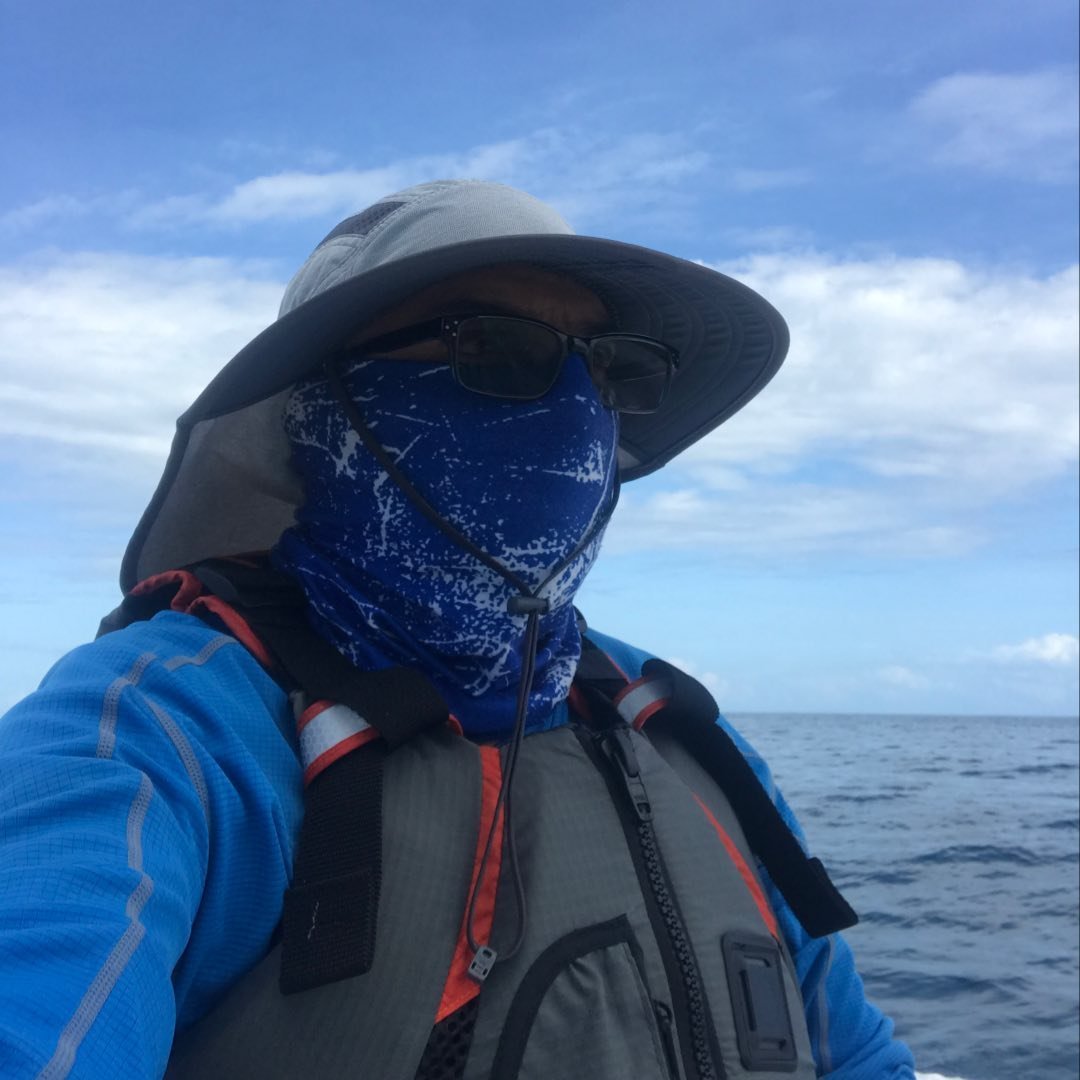

Frank Garita Alpízar is a Research Associate with Cascadia Research. Frank has been involved in research on the migration of humpback whales and the study of other marine mammal species along Central America with Cascadia Research and VIDA since 1996. As president of the Costa Rican environmental association VIDA he dedicates much of his time to environmental education programs in schools along the Pacific coast of Central America. Frank is an active member of the Latin American Society of Specialists in Aquatic Mammals (SOLEMAC) and focuses on conservation and management of marine mammals. Frank can be reached at mntico07@yahoo.om.ar.
Daniel Webster
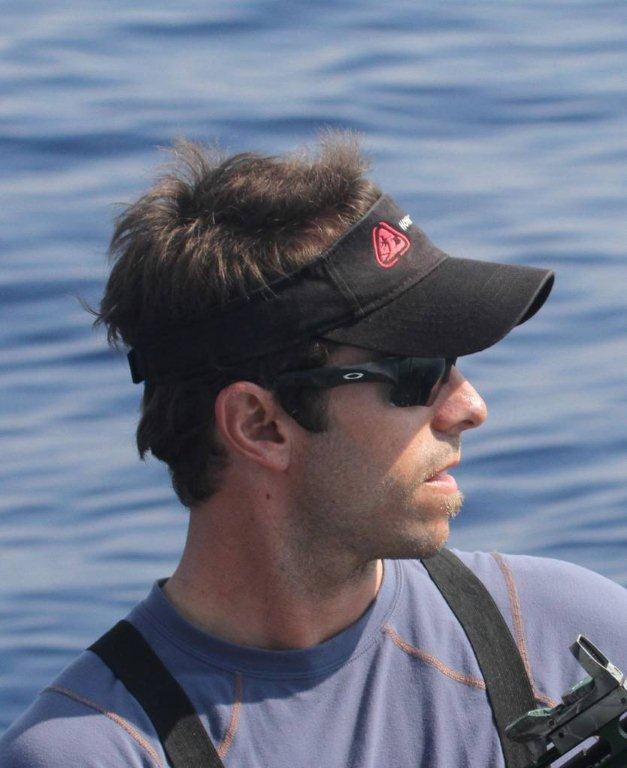

Daniel Webster is a Research Associate with Cascadia Research. Daniel has been involved in Hawaiian odontocete research since 2000 and has worked with Cascadia Research since 2003. As well as involvement in suction-cup tagging, photo-identification and biopsy efforts Daniel has been involved in examining movements of Hawaiian odontocetes using satellite tags, as well as similar efforts in California, and participating in studies of killer whales in the San Juan Islands and southeast Alaska. Daniel can be reached at dwebster@cascadiaresearch.org.
Diane Alps
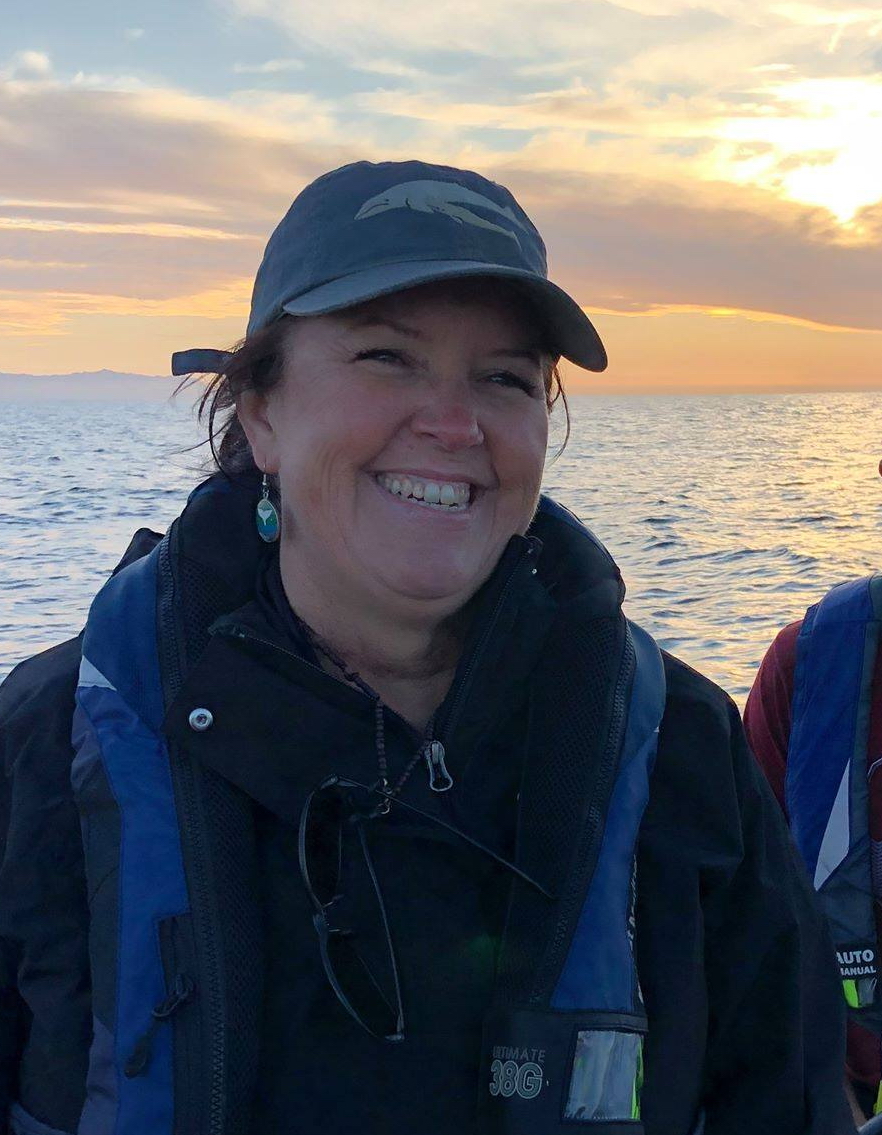

Diane Alps is a Research Associate with Cascadia Research. She has collaborated with Cascadia since 2005 by providing Southern California field support, education and outreach. Her primary research interests include boater interactions and whale watching impacts. She developed WhaleSAFE, an outreach program created to raise awareness about safe whale watching and responsible ecotourism. Diane is also a Marine Mammal Observer, and created a Marine Mammal and Sea Turtle Avoidance Training Program for Chevron‘s vessel operators and the California State Lands Commission. Diane is the Large Whale Stranding Coordinator for Channel Islands Cetacean Research Unit, and works with the international Stranding community to study Pennella balaenopterae, a relatively unknown parasitic copepod found on cetaceans. She has a US Coast Guard 100Ton Masters License, and loves to get people on the ocean!
Kristin Rasmussen
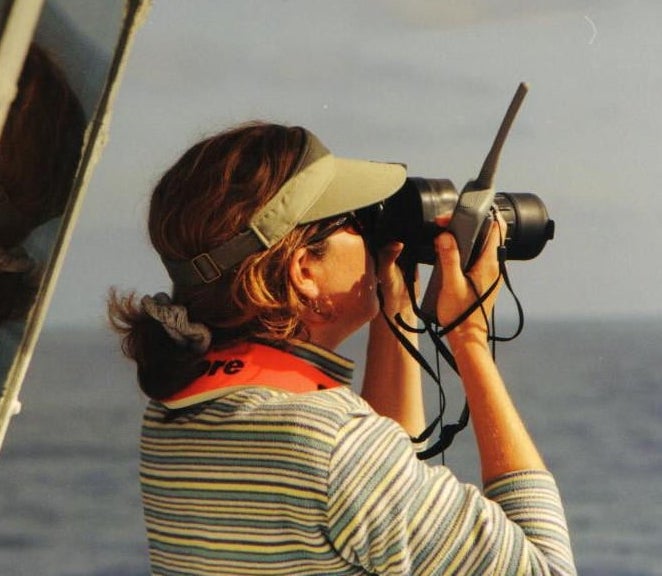

Kristin Rasmussen is a Research Associate with Cascadia Research, and has worked with Cascadia since 1994. Her research has focused on humpback whales, with an emphasis on their wintering distribution along Central America where she has studied this species since 1996. She initiated a research effort on use of Central America as a wintering area for Southern Hemisphere humpback whales. She was Chief Scientist on a cruise in winter 1999 through Central American waters for humpback and blue whales. She has served as a marine mammal observer for SWFSC. She received her Masters of Science degree at Moss Landing Marine Laboratories in 2006, with her thesis focusing on humpback whales off the Pacific coast of Central America. Kristin can be reached at Krill@aol.com.